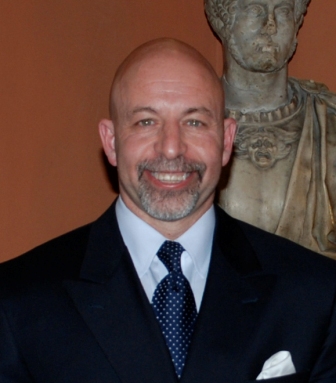 Prof. James Giordano, PhD, is Vice President for Academic Programs and Director of the Center for Neurotechnology Studies at the Potomac Institute for Policy Studies. In the latest post on his blog Neurosecurity, he writes about the ongoing debate over the application of neuroscience and neurotechnology in national security, intelligence and defense (NSID). Prof. Giordano notes that some in the neuroscientific community have called for their colleagues to disavow any involvement in NSID. But he argues that while ethical and moral probity must be maintained, avoidance is not the answer. Prof. Giordano writes, "Thus, I call for some – but certainly not all – neuroscientists and neuroethicists to be actively involved in the discussion and debate, as informed, experienced experts at those tables where guidelines and policies are made, to work proactively to provide lenses and voices to report what neuroscience can and cannot do, and to be participatory in the formulation of directives that shape and govern the ways that neuroS/T should – and should not – be utilized." Click here to read the post in full.
Prof. James Giordano, PhD, is Vice President for Academic Programs and Director of the Center for Neurotechnology Studies at the Potomac Institute for Policy Studies. In the latest post on his blog Neurosecurity, he writes about the ongoing debate over the application of neuroscience and neurotechnology in national security, intelligence and defense (NSID). Prof. Giordano notes that some in the neuroscientific community have called for their colleagues to disavow any involvement in NSID. But he argues that while ethical and moral probity must be maintained, avoidance is not the answer. Prof. Giordano writes, "Thus, I call for some – but certainly not all – neuroscientists and neuroethicists to be actively involved in the discussion and debate, as informed, experienced experts at those tables where guidelines and policies are made, to work proactively to provide lenses and voices to report what neuroscience can and cannot do, and to be participatory in the formulation of directives that shape and govern the ways that neuroS/T should – and should not – be utilized." Click here to read the post in full.
Past Events
2015 Navigator Awards
The 2015 Navigator Awards
ICTS Seminar -The Palestinian-Israeli Conflict: A Third Intifada or an Endgame? - October 2, 2015
Potomac Institute for Policy Studies
The Inter-University for Terrorism Studies
The Palestinian-Israeli Conflict: A Third Intifada or an Endgame?
October 2, 2015
NATO's Mission in the Old-New Strategic Environment: Confronting Regional and Global Challenges
The most pressing security challenges facing NATO today and tomorrow include terrorism, homeland threats, cyber attacks, information warfare, the Ukraine crisis, piracy, and WMD proliferation. A new book, "NATO: From Regional to Global Security Provider" is released September 17, 2015 at a special ...
Combating Separatist Terrorism
“Combating Separatist Terrorism: Assessment of Past Lessons, Future Outlook, and 'Best Practices' Response Strategies,"
August 27, 2015 at Potomac Institute for Policy Studies
Since the establishment of the UN, many of the new or changed political entities created in the name of "self-determinati...
A Special Seminar on: "Terrorism Captives: Tactical, Legal, and Strategic Implications"
Kidnapping and hostage taking by state and non-state actors constitute a permanent fixture of terrorist tactics that is attractive and effective. The latest media focus on American and foreign captives in Iran, Syria, and elsewhere provides an opportunity to assess the historical lessons learned, an...






